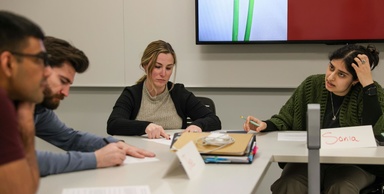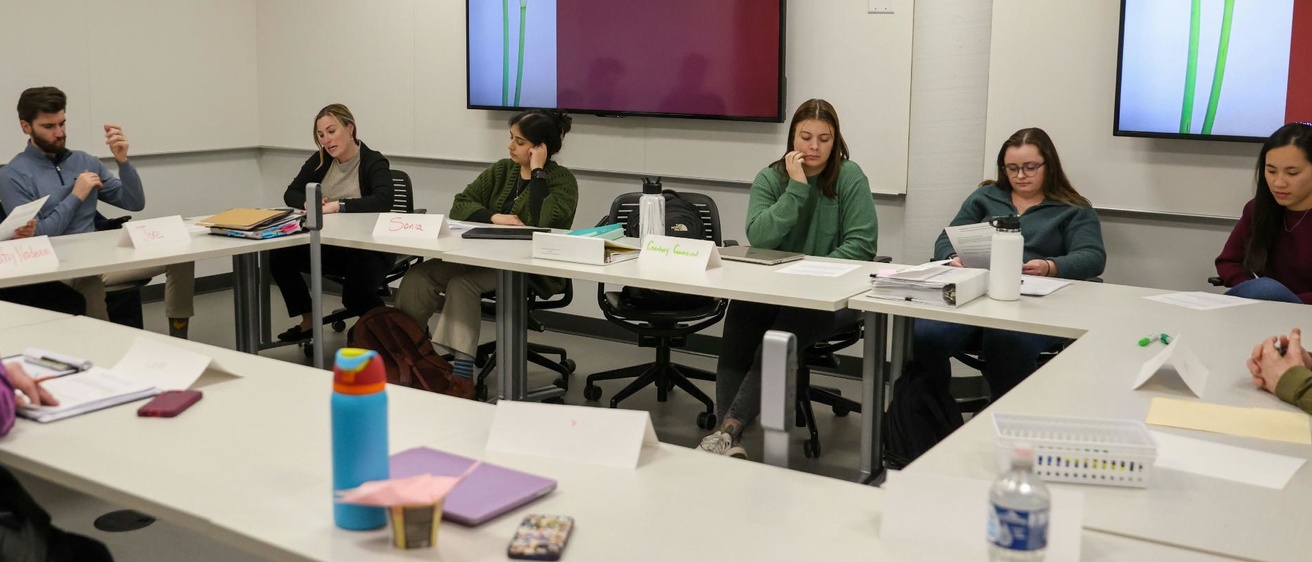A recent workshop collaboration between the College of Law and College of Nursing gave students preparing for both professions an opportunity to learn more about legal and healthcare issues surrounding end-of-life decision-making.
The two-hour event, “Navigating the Intersection of Law and Healthcare: An Interactive Workshop for Future Practitioners,” brought together students from the Estate Planning and Law & Policy in Action clinics and graduate students in the College of Nursing. Topics included Medical Powers of Attorney (Medical POA), Living Wills, and other decision-making considerations for critical health issues.
Elise Fenton, JD Candidate (2025), said the workshop illustrated the difference between how advance directives like Living Wills work in theory versus how they may be utilized in practice.
“We have spent a lot of time learning about and drafting advance directives this semester, and it was very valuable to hear about the nursing students’ experiences with these kinds of directives,” Fenton said. “There is a way that Medical Powers of Attorney and Living Wills are supposed to work in theory, but this workshop showed me that even the best-laid plans and directives can still go awry.”
Emily McDonald, BSN, RN, a certified Adult-Gerontology Primary Care Nurse Practitioner (AGPC-NP) who is studying for her doctoral degree in the College of Nursing, said she was surprised that the law students weren’t aware of many healthcare decisions that can affect quality of life.

“I think it’s important that, if they are helping someone draw up these papers, they are informed about the possibilities these individuals may experience,” McDonald said. “For example, (the law students) knew the most common question – Would you want to be intubated or not? – but hadn’t really thought about what other sorts of things may enhance a person’s quality of life and whether they want those things in their Living Will or Medical POA.”
JD Candidate Sonia Mehra said she appreciated the opportunity to learn this kind of real-life information.
“Collaborating in law is so important because it helps us understand how the law is actually being applied, which is key to effective practice,” Mehra said. “I hope the Estate Planning Clinic continues to collaborate with the College of Nursing and that the College of Law creates more opportunities for law students to work with colleges so that more students can gain this invaluable experience.”
Fenton agreed, saying, “I think it is important that folks in different fields, such as law and medicine, work together because we all have different talents and perspectives to bring to the table, which always makes for the most effective problem-solving.”
